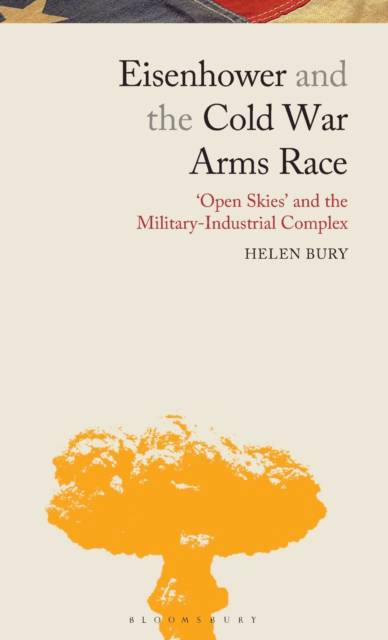
- Afhalen na 1 uur in een winkel met voorraad
- Gratis thuislevering in België vanaf € 30
- Ruim aanbod met 7 miljoen producten
- Afhalen na 1 uur in een winkel met voorraad
- Gratis thuislevering in België vanaf € 30
- Ruim aanbod met 7 miljoen producten
Zoeken
€ 271,45
+ 542 punten
Uitvoering
Omschrijving
Under the growing shadow of the Cold War, President Eisenhower announced his 'Open Skies' initiative to Soviet, British and French delegations at the Geneva Summit in 1955. In a climate of intense fear and suspicion, this proposed system of mutual aerial inspection was dismissed by Khrushchev and the Soviet Union as nothing more than an 'espionage plot'. Nevertheless, Eisenhower campaigned for its implementation until the end of his presidency. Here, Helen Bury provides a new interpretation of Eisenhower's 'Open Skies' programme, arguing that it functioned as a corrective to John Foster Dulles' 'New Look' defence strategy - which relied on the threat of massive nuclear retaliation. A critic of the 'military-industrial' complex which was gaining power in American statecraft and which sought to expand military spending, Eisenhower aimed instead to safeguard the economic strength of America. Eisenhower and the Military-Industrial Complex is the first in-depth study of the Open Skies policy and essential reading for historians of the Cold War and the International Relations of the United States.
Specificaties
Betrokkenen
- Auteur(s):
- Uitgeverij:
Inhoud
- Aantal bladzijden:
- 304
- Taal:
- Engels
- Reeks:
- Reeksnummer:
- nr. 2
Eigenschappen
- Productcode (EAN):
- 9781780762791
- Verschijningsdatum:
- 19/12/2013
- Uitvoering:
- Hardcover
- Formaat:
- Genaaid
- Afmetingen:
- 145 mm x 221 mm
- Gewicht:
- 517 g

Alleen bij Standaard Boekhandel
+ 542 punten op je klantenkaart van Standaard Boekhandel
Beoordelingen
We publiceren alleen reviews die voldoen aan de voorwaarden voor reviews. Bekijk onze voorwaarden voor reviews.











